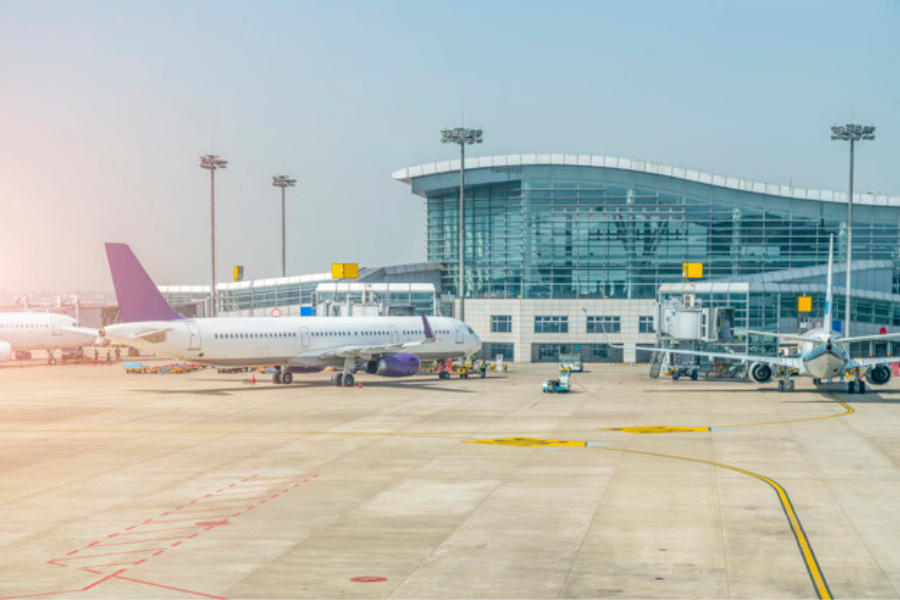
Aeronautics: challenges and future of the sector
The vast majority of sectors have been affected in some way by the coronavirus crisis, however, the aeronautical sector has been one of those that has suffered the most from the blows of this exceptional situation.
Importance of the sector in Spain
According to the data provided by the COIAE (College of Aeronautical Engineers), the aeronautical sector contributes 2.5% of the total Spanish GDP and directly employs nearly 100,000 people. More specifically, in 2019 the sector generated € 27,960 million distributed among:
- Aviation: € 12.2 billion
- Industry: € 8,560 million
- Airports: € 4.42 billion
- Rest: € 2,780 million
This sector has a high added value in our country due, fundamentally, to two essential characteristics:
- It requires highly qualified professionals, who enjoy considerable job stability.
- It operates with long-term projects, between 10 and 15 years.
We must not forget that, on the one hand, the peninsular nature of Spain makes it essential to have good air communications for the transport of people and goods, while, on the other hand, the importance of this sector takes on special relevance if we take into account that It is estimated that 80% of tourists visiting Spain do so by air.
It is a sector that in recent years (due to the environmental awareness that currently prevails in Spain) was being highly questioned due to its high CO2 emissions and its contribution to climate change, both in the construction phase and in the operation and maintenance.
Added to this is the high cost of fuel, forcing companies to seek new methods to manufacture safer ships, which at the same time save fuel and use some type of clean energy source.
This was the point at which the sector was when the pandemic arrived and destroyed all the plans planned for this year.
Consequences of the coronavirus crisis
As we have mentioned previously, many sectors have been affected as a result of the health crisis, but in Spain, a country highly dependent on tourism, the effects have been worse than for others.
The main sequel has been that many aircraft have stopped flying as a result of the high restrictions imposed by the vast majority of countries. Flights have been limited, since, excluding a few exceptions for work reasons, the vast majority of the population canceled their summer holidays.
To give us an idea, according to data from the Airbus airline, world air traffic is between 55% -60% below 2019 levels, which implies that there are about 7,400 aircraft on the ground, a little more 30% of the world fleet.
Faced with this bleak outlook, we find that the recovery of the sector could begin to be seen from 2023 in an optimistic scenario, and from 2025 in a pessimistic scenario. That is, this health crisis will lose between 3 and 5 years of growth in the sector.
Challenges and future of the sector
Regardless of the coronavirus crisis, the sector has been facing a number of challenges for years:
- The emergence of new competitors from China and Russia.
- The level of investment in production capacity and technology is increasing.
- Environmental restrictions force the sector to invest and R&D to find efficient ways to continue offering the same service while respecting the new laws.
- The sector is dominated by few and large operators, leaving small airlines in a weak situation, because they cannot invest as much money in improvements as their rivals.
In the current situation, in addition to facing these challenges, the sector must face new difficulties derived from the health crisis. First of all, they must face the uncertainty that we are experiencing today, that is, with just over a month to say goodbye to the year, the vast majority of European cities are confined and closed to the outside, which does not bode well. good for the sector.
As is normal, citizens do not dare to make long-term plans or to schedule their vacations since they are aware that, if at any time the situation worsens again, the restrictions would be imposed again.
Leaving that aside, even if measures are relaxed and air travel is allowed again, airlines will have the enormous challenge of restoring confidence in their services. Many passengers will want to have every guarantee that the flight will be safe and that all relevant health measures will be respected.
Coupled with this demand for a safe flight, according to a Statista study, the majority of Spaniards are willing to change their travel habits after the pandemic. So much so, that more than 60% of those surveyed declared that they give more importance to less crowded destinations and to accommodation with maximum hygiene guarantees, in addition to prioritizing national and closest destinations.
All these new requirements derived from the coronavirus crisis accentuate, even more, the need for changes in a sector that cries out for a renewal that allows it to be competitive and be able to face the new post-covid world scenario.





